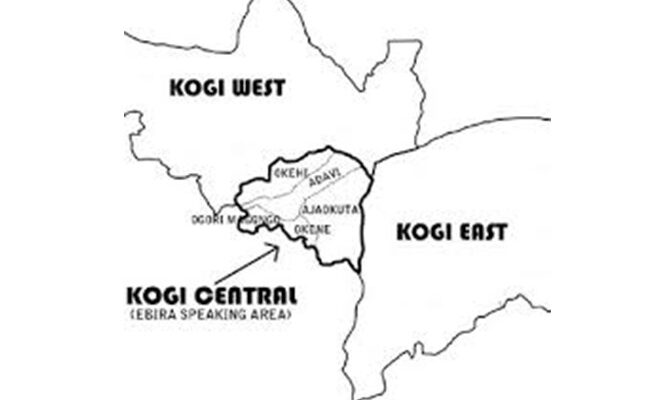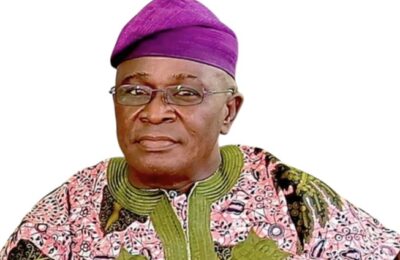By El-Okene Adabara Abduljelil.
The political evolution of the Egbira (Ebira) and Okun people is a story of shared history, marginalization, and ultimately, hopeful collaboration. From the days of the Kabba Province under colonial Northern Nigeria to the present-day reality of a unified Kogi State, their journey reflects resilience, strategic alignment, and a growing resolve to protect a legacy of unity.
A Journey Rooted in Shared Struggles
Following the 1967 state creation, the Kabba Province—which included the Ebira, Okun (Yoruba-speaking Kogites), Bassa, Ogori-Magongo, Nupe, and other minority tribes—was merged into the newly created Kwara State. While they remained under one administrative umbrella, their cultural and political aspirations diverged from the dominant forces in Ilorin, paving the way for future agitation.
This collective yearning gave birth to Kogi State on August 27, 1991—carved out from parts of Kwara and Benue States. Since then, political leadership has rotated among its three senatorial districts:
Kogi East (Igala)
Kogi Central (Ebira)
Kogi West (Okun and other minorities)
From 1991 to 2015, the governorship remained with Kogi East through Prince Abubakar Audu, Alhaji Ibrahim Idris (Ibro), and Captain Idris Wada—prompting growing calls for fairness and balance from the other zones.
The 2015 Turning Point: Ebira–Okun Political Collaboration
The 2015 APC gubernatorial primaries marked a pivotal moment. Alhaji Yahaya Bello, a relatively unknown Ebira candidate from Kogi Central, surprisingly gained significant support—especially from Okun communities—despite his outsider status.
When the APC flagbearer, Prince Audu, tragically passed away after winning the general election, Bello’s emergence as governor became both a historic development and a symbol of political trust. The Okun support, though often overlooked, played a critical role in shaping this outcome.
Yahaya Bello’s Governance: Rebalancing and Inclusion
Between 2016 and 2023, Governor Bello made efforts to redress past imbalances by:
Extending infrastructural and institutional development across all zones
Founding Kogi State University, Kabba—a major milestone for Okunland
Establishing CUSTECH in Kogi Central, fulfilling a long-standing aspiration
His tenure marked a shift from regional dominance to inclusive governance. It was not perfect, but it demonstrated a commitment to fairness and healing.
This vision aligns with the dreams of great past leaders like:
Chief Sunday Awoniyi – The Okun statesman and pillar of national integration, RIP.
Dr. AbdulAzeez Faruk – An Ebira nationalist and champion of unity, RIP.
Ambassador Usman Bello – A silent force behind inter-ethnic peace
Beyond Ethnicity: A New Political Consciousness
The 2023 election, which produced Governor Ahmed Usman Ododo, reaffirmed a departure from ethnic entitlement toward broad-based political strategy. Though he hails from the same Ebira stock as Bello, Ododo’s support cut across senatorial lines—including significant blocs in Kogi West.
This is the new political gospel: competence, consensus, and capacity—not tribal agitation—must guide leadership choices.
The Okun Agenda: Building Forward Together
Power has rotated from Kogi East to Kogi Central. By divine balance and democratic spirit, Kogi West’s time must come. But it requires unity among Okun leaders, clarity of purpose, and strategic engagement—not internal rivalry or passive waiting.
The founding vision of Kogi State as a tripod of equity must endure. As the proverb says:
“A house divided cannot stand.”
Kogi must remain a tripod—each leg strong, each voice respected.
Okun Champions: Pioneers Who Shaped the Journey
Chief Joseph Olayiwola Akomode – Early nationalist and advocate in the Kabba Province
Chief Sunday Bolorunduro Awoniyi – “The Sardauna of the North,” founding PDP member, SGF
Chief S.B. Daniyan – Influential educationist and Mopa leader in the Northern Region
Chief Bayo Ojo (SAN) – Former AGF and Minister of Justice
Chief Samuel Adekunle Aro – Prominent 2nd Republic politician
Senator Tunde Ogbeha – Lokoja statesman and bridge-builder with Okun alliance
Let the living among them continue to lead with vision, and let those like Chief Awoniyi rest in honor. His son, Yomi Awoniyi, former deputy governor, should now rise with others to advance this shared vision of unity.
Final Word: A Call to Protect the Legacy
The Ebira–Okun alliance is not merely political; it is a blueprint for sustainable governance and peaceful coexistence. We must defend it—not just for convenience or rotation—but to build a Kogi State where every citizen belongs, thrives, and contributes.
Let trust, collaboration, and shared responsibility guide our steps.
The next chapter awaits—and we must walk it together.
About the Writer
The writer, Comrade Adabara Abduljelil El-Okene, hails from a family with a long-standing history in Northern Nigerian politics. His grandfather, Umar Adabara, was the President of the Northern People’s Congress (NPC) in Ebiraland for 16 years. His father, Alhaji Ishaq Adabara, served as the Regional Secretary of the National Party of Nigeria (NPN) in the old Kwara State. His uncle, Alh. Abdullahi Adabara was a pioneer treasurer of the PDP and contested the position of PDP State Chairman three times during the party’s formative years in Kogi State.
Many other family members have played political roles too numerous to mention.
This article is open to correction and not intended to slight or provoke any ethnic group. Rather, it is a humble call for unity among all political leaders in Kogi State—for the sake of our shared progress and posterity..




